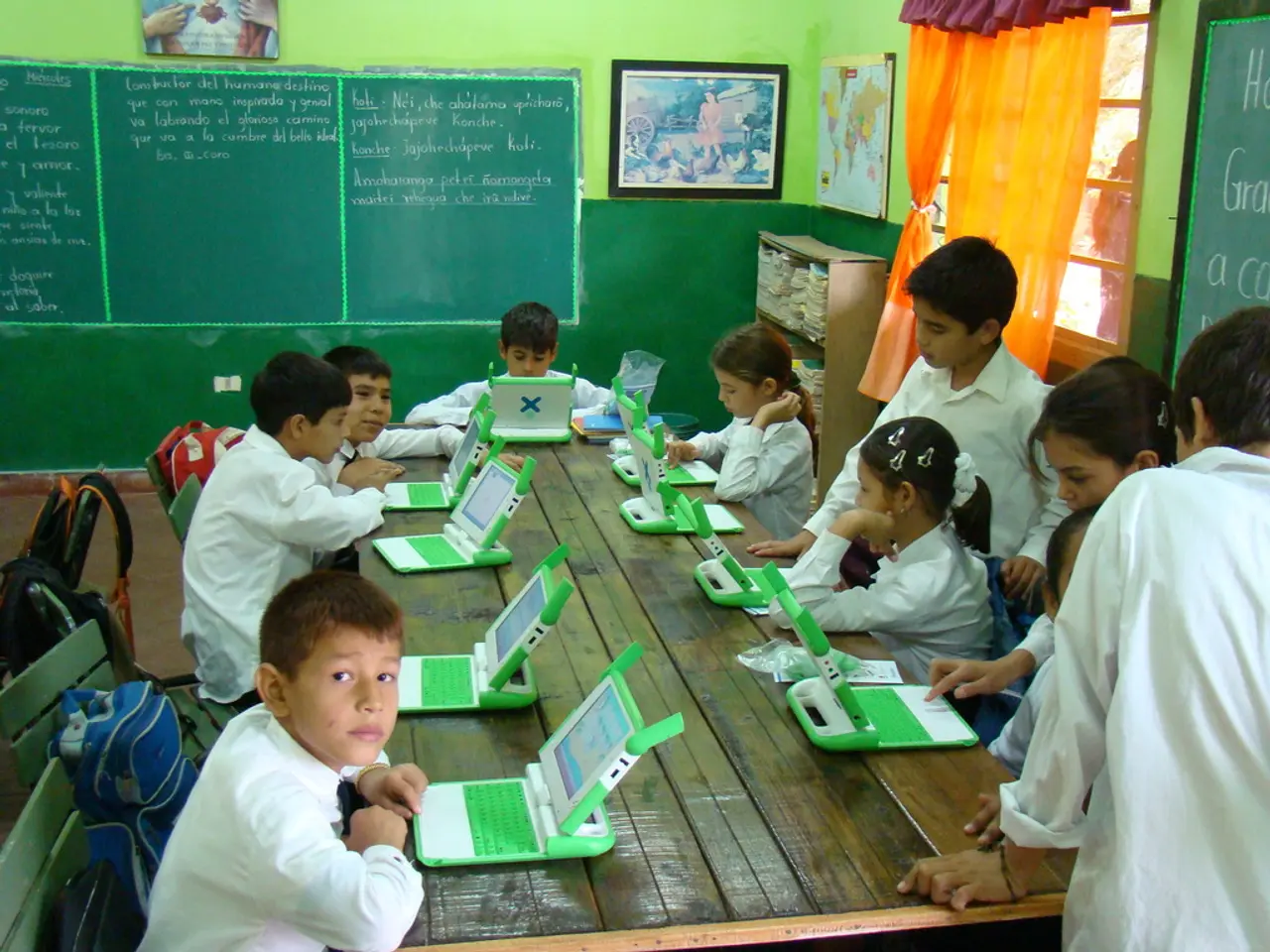Collaboration between ICT Authority and UNICEF for Internet Connectivity in 1000 Kenyan Schools
The Last Mile Connectivity Project (LMCP), a joint initiative between Kenya's ICT Authority and UNICEF, is making significant strides towards improving digital infrastructure in schools across Kenya. This project is a crucial step towards bridging the digital divide in Kenya's education system, particularly in rural and underserved areas.
The LMCP's focus begins in Kajiado County, with the initial target of connecting 60 schools. This marks the first step in a broader mission to connect 1,000 schools across Kenya. Bwaley Thomas, the Director of Programmes and Standards at Kenya's ICT Authority, and key figures within both the ICT Authority and UNICEF are overseeing the project's progress.
Recently, the team met with the Acting CEO of the ICT Authority, Zilpher Owiti, who reaffirmed the institution's support for the project's goals. Charles Otine, Innovation Manager, and Moses Rono from UNICEF outlined plans to advance the LMCP, which includes the rollout of Phase III.
Phase III, funded by a loan from the African Development Bank (AfDB) and the Canada-AfDB Climate Fund, aims to connect 180,500 new electricity customers, including schools, households, health centers, and MSMEs. The project's implementation is set for 24 months, starting from mid-2025.
Besides electrification, Kenya is also advancing rural broadband infrastructure rollout. Bids for network deployment are due by October 2025, with construction starting in January 2026. This includes 4G/5G telecommunications towers, fixed wireless last-mile solutions, and public Wi-Fi hotspots. Digital literacy programs are also being developed to maximize educational and economic benefits.
The LMCP is a major initiative aimed at improving digital access in Kenya's education sector. Since its original launch plan in 2016, the project has undergone multiple phases, with Kenya seeing electricity access rise from 37% in 2013 to about 79% by 2023, largely driven by earlier LMCP phases. The country targets universal electricity access by 2030, using mainly renewable energy sources, which supports digital inclusion in education.
The LMCP's electrification efforts are expected to enhance quality of life, socio-economic development, and educational outcomes by powering schools and enabling digital learning tools in remote regions. Increased electricity access also facilitates healthcare, security, and business growth in rural communities.
More students will have the resources needed to thrive in the digital age due to the LMCP. The project’s success in Kajiado County is a significant step towards bridging the digital divide in Kenya's education system, and a testament to the shared commitment of Kenya's ICT Authority and UNICEF to enhancing access to ICT in schools.
[1] Kenya's Last Mile Connectivity Project: Phase III Approved, Implementation to Begin Soon, The Star, August 29, 2025. [2] Kenya's Last Mile Connectivity Project to Boost Rural Broadband Infrastructure, ITWeb Africa, July 15, 2025. [3] Last Mile Connectivity Project: Bringing Power to Remote Schools, UNICEF Kenya, August 15, 2025. [4] Kenya's Last Mile Connectivity Project: Achievements and Future Plans, The Daily Nation, August 25, 2025.








